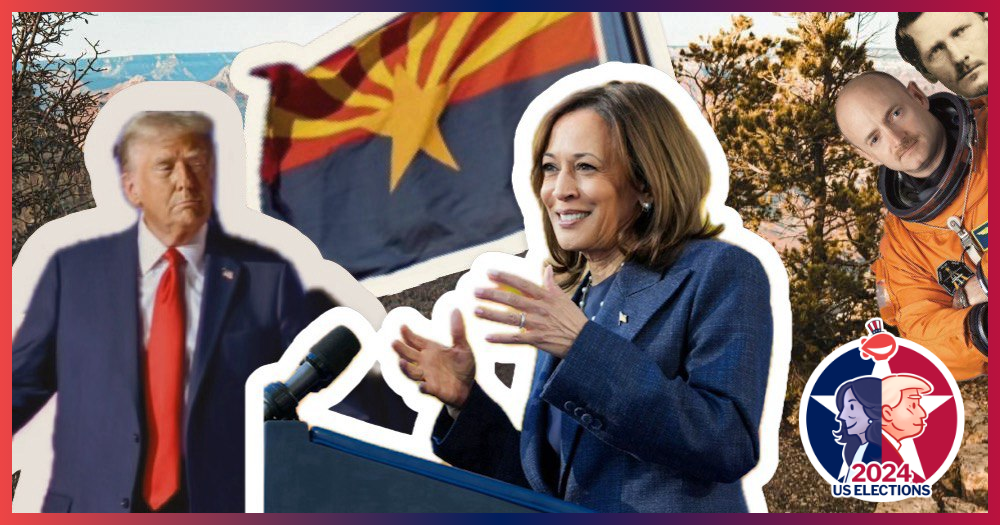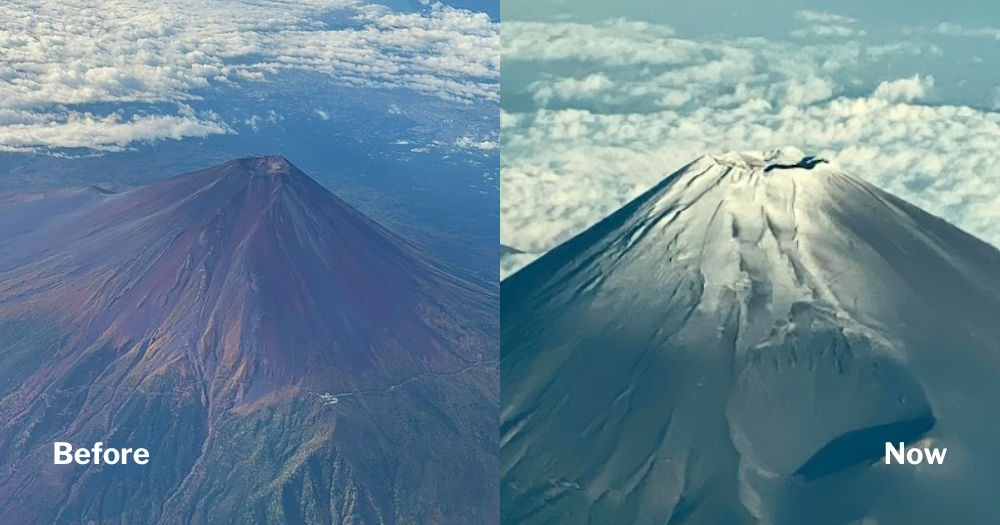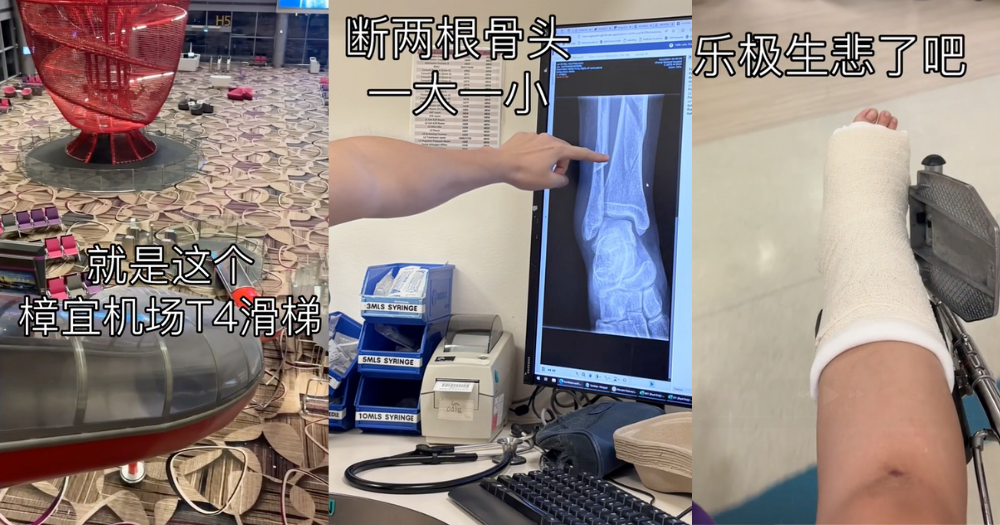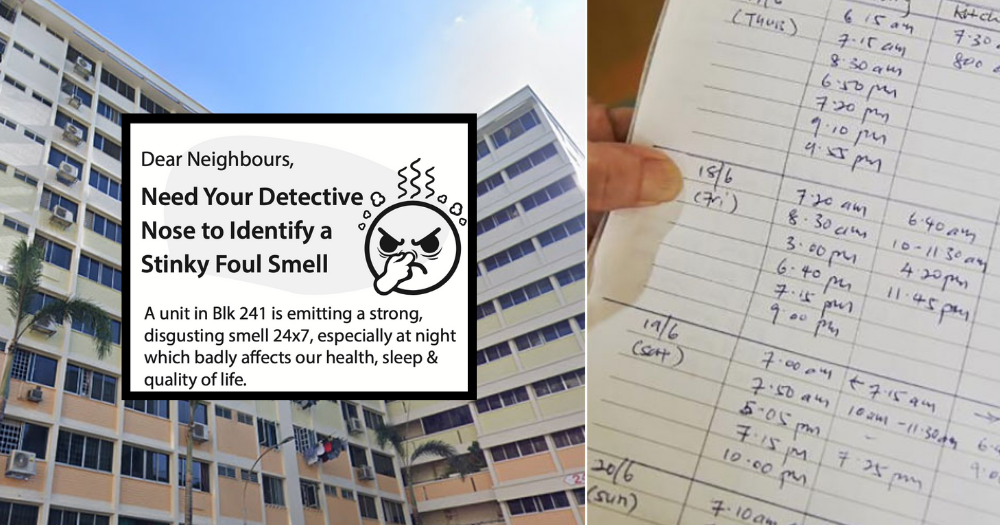Red or Blue? The states deciding the 2024 US presidential election: Arizona
No longer wild, still West, will Arizona be gold for Trump or Harris?

The U.S. election is coming up, with voters in all 50 states deciding who to elect as the next president.
But most states are considered "safe", either solidly Republican or Democratic, and both Kamala Harris and Donald Trump have not spent time or money trying to persuade the voters there.
Instead, both candidates are gunning for the main prize — seven "swing" states that will determine the election and the presidency.
Copper toned
Arizona is known for the Grand Canyon, the border, the desert, and probably the coolest-looking state flag in the United States.
The star in the centre of the flag is copper coloured, because when the state adopted the flag over a century ago, the production of copper was, and remains, one of its major industries as the largest producer of copper in the United States.
Arizona was the last continental state to join the US, gaining statehood in 1912.
But before that, it was one of the territories at the forefront of the 1849 Gold Rush and the Wild West era that followed.
Tombstone, Arizona was the site of the Gunfight at the O.K. Corral in 1881.
The state that elected an Astronaut
In most of the modern post-Second War War era, Arizona historically voted Republican for president with only three exceptions, in 1948 for Harry Truman, 1996 for Bill Clinton, and most pertinently 2020 for Joe Biden.
Arizona has 11 electoral votes, due to having two senators and nine congressmen, six of whom are Republicans, and the other three are Democrats.
Both of its current senators are Democrats, including Mark Kelly, the former Navy pilot and astronaut who was elected in 2020 and 2022 and was seriously considered as Kamala Harris’s running mate.
Arizona was the first of many 2020-related election controversies, when Fox News called the state for Democrat Joe Biden at 11pm on Nov. 3, in an incident recalled by the New York Times.
Fox is known to be, on balance, fairly pro-Republican, having staked its claim on the pro-Trump demographic.
Despite this it determined that the state would go to Biden very early on, despite incredulity from other parts of the network.
Trump ran Biden close in the state, coming within 0.3 per cent of victory in an outcome that would not be confirmed until Nov. 23 2023.
Border state
Arizona’s concerns for the election are not drastically dissimilar from that of the nation, with cost-of-living, immigration, and a woman’s right to choose being front and centre.
But Arizona is in a unique position, as it is actually a border state, and it therefore has to directly confront the impact of cross-border immigration, especially illegal immigration.
As a border state, Arizona has a more nuanced approach to the issue, having to face the reality of the border and illegal immigration upfront.
It has a ballot measure for 2024 which will give state-level police more authority to stop those they suspect of having illegally crossed the border.
Proponents of the ballot, according to CNBC News, say that support for it is being driven by exasperation and frustration with the lack of action by the federal government.
Illegal immigration is a major topic in the 2024 election, particularly after Donald Trump torpedoed a national initiative to address the problem, allegedly to keep it alive as a campaign issue.
But those who oppose the ballot measure do so for many reasons.
Local business owners, for whom immigrants make up 16.2 per cent of their workforce, say that certain industries, such as construction, hospitality, and agriculture already face significant labour shortages.
Any ballot measure to curtail immigration would only impact that more.
They also dispute that immigrant labour is taking jobs from locals with higher education qualifications, as is implied by Trump loyalist Kari Lake, with one local hospitality CEO saying that the job pools are not the same.
Lake herself is running in 2024 for a senate seat, after failing to win the governor's seat in 2020.
Split status
But NPR also points out that the citizenship status of many local residents is not always clear.
The state has a large Latino and Hispanic population, and many families have members who are both U.S. citizens, and not citizens. Many such families worry that anti-immigration measures will potentially split them apart.
Those opposed to the ballot also point out that away from the border’s immediate area, there is no way for state police to correctly identify an illegal immigrant just by looking at them.
The worry is that the measure will essentially be at best useless, or worse, a means through which native Hispanic communities will be unjustifiably targeted by law enforcement.
Get out the vote
Also on the local ballot is an initiative to ban abortion after 15 weeks, except for medical emergencies that might endanger the life of a mother, as reported by ABC News.
Abortion is another hot-button topic in the 2024 election, with the Harris campaign using it as a spur to get women to vote.
Campaigns are less worried about people supporting them and more concerned about whether their supporters are actually turning out to vote.
Having multiple reasons, such as these ballot measures, to spur their voters to casting their vote is a significant factor in how the state's results will turn out.
Chips and dip
One less immediately important factor is the CHIPS Act.
Trump’s presidency was famously anti-China, starting a trade war that specifically targeted high-end computer parts, such as microchips.
When Joe Biden became president he largely continued this course of action, enacting the CHIPS Act which tries to bring high-end chip production from Taiwan to the U.S., with the assistance of Taiwanese company TSMC.
TSMC was given a sizeable amount of assistance in building a fabrication plant in Arizona, but it only came online in 2024, after a frustrating and significant delay.
Part of the benefit of the plant would have meant that it would have been a source of good-paying tech jobs, a potential vote winner for Biden.
The plant is now running and is reported by Tom’s Hardware to be producing 4 per cent higher yields than comparable facilities in Taiwan, but its economic impact is likely too late to significantly influence the outcome of the election.
If the plant turns out to be a success, especially if it happens in the next year or so, the delays it experienced might be considered one of the great what-ifs of the 2024 presidential election.
Related stories
Top image via Donald Trump/Facebook, Kamala Harris/Facebook, Juan Rojas/Unsplash, Jeremy Alford/Unsplash, & Wikipedia
MORE STORIES




















